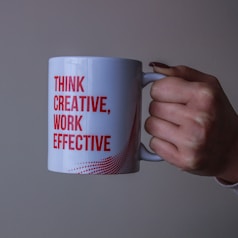Sponsored By: Green Chef | Use code tinyleaps90 to get $90 off including free shipping!
In episode 650 of the Tiny Leaps podcast, we focused on confronting perfectionism and concluded that the simple solution was to recognize that we are enough. Our version of “perfect” is enough. We need to be compassionate with what we see in the mirror and the image that looks back at us.
This is practiced through improving our speech. Using language to encourage ourselves rather than tear ourselves down. If you are beginning to establish these practices in your speech, then the next step is to tackle mediocrity in your life.
What do you hear when someone says mediocre?
I anticipate that one word which comes to mind is ordinary or average. For some reason these two things have become bad. Somehow the idea of being ordinary or average is equated to failure. But when did ordinary become a lifestyle to be avoided? When did we condemn it as not being good enough?
To understand the barriers we have built let’s walk through a scenario.
You are going on a blind date. You enter the restaurant, the coffee shop, the park, and you see them for the first time. The excitement is still there but in addition you are making a number of judgements about them. Appearance – do you find them attractive? Outfit – what lifestyle does it suggest? What does their body language reveal? Within moments, you have formulated an impression. One that is maintained until our experience either proves it or redefines it. This mental process is natural so what makes it a negative habit?
Making judgments is our mind’s way of cataloguing and processing the volume of data it has to filter every day. It enables us to adapt to the environment and respond to the social situation. The danger comes when we allow these initial judgments to become concrete impressions. When we box individuals into a category and expect them to behave in a particular way.
He lives here and therefore…
She works as and therefore…
If we are not mindful these preconceptions can be destructive. They can limit the opportunities we take and the relationships we choose.
Do Not Let “Extraordinary” Become Your Enemy
To start we need to refer to the research of Alain De Botton. He is a Swiss-born British philosopher who explores the philosophy of everyday life. He states that our tendency to ask the question: “what do you do?” is our downfall.
We use the responses to this question to define a rigid understanding of who we are and who others are. That rigidity is exactly where the problem is. We allow a small part to create a universal meaning of an individual. This formulation of a judgment can trap both us and our relationships with others.
So, why do we do it? Why do we create a self-imposed trap around what we expect from ourselves and others?
One proposed cause is that of material accumulation.
We live in a world of materialism however the materialism itself isn’t what we actually want. Our desire for material goods: a new phone, a fancy car, an impressive home, are accumulated in order for us to feel a sense of fulfilment – in De Botton’s words they “are a conduit.” It is ultimately the state of fulfilment that we crave though. By nature, we are relational beings. We crave love and acceptance. But when we prioritise WHAT we do, WHAT we have, above WHO we are, WHO we are with and HOW we experience life, our self-fulfilment will remain void. We will continue to accumulate but there will be emptiness in it.
The paradox with a meritocracy is that it creates a mental imbalance between those who have and those who don’t. You can work incredibly hard but still comparatively have a lifestyle that does not compare. Our tendency to view material gains through this biased gaze – them being a measure of our merit and hard work – inverts what fulfilment they can give us. It creates a framework for how we interpret the lives of others, and our own in comparison.
It is at this juncture that De Botton presents the most challenging question: “can we deal with who we are without the “stuff”? This acceptance of who we are is the key to how we prevent material accumulation becoming a mental barrier. If we are happy in our state, then the merits and accomplishments of others doesn’t really matter. The question “what do you do” becomes replaced with “who are you?”
This “sickness” we have created, De Botton shares can be proven in the concept of ‘The American Dream.’ Ambition is not the enemy. But when we idealise, and make perfect, what that dream should be, it exaggerates our own insignificance in relation to it. All of a sudden we are questioning who we are? Are we good enough? If we do not have the material gains to illustrate it, have we achieved self-fulfilment?
The answer is always yes. You are good enough. You are ordinary. No matter what you accomplish in this life you will always be ordinary. That is life. We can have extraordinary experiences but the gift of life is the ordinary experience of everyone.
Finding a Solution
So, how do we practically cultivate this habit? I propose the adoption of Donald Winicott’s formula for “good enough.” He is a psychoanalyst who provides a framework to achieve this goal. There are 5 realities we have to accept about how our minds work – we need to consciously think through how they influence our behaviour:
1. We are vulnerable – we are vulnerable to suggestion, to interpretation, to influence. Therefore, we need to avoid imposing our belief system on those of others. Allowing it to blind us, or bias us, towards how we interpret their actions. Our lives do not have to be carbon copies. Our life can be “good enough” even if they are polar opposites.
2. We need to feel our own emotion – we have a tendency to echo the emotions of those around us. We match anger with anger, jealousy with jealousy. This echo causes these emotions to be amplified – leading only to internal chaos. Instead we need to choose to match anger with calm. Jealousy with forgiveness or compassion. This counterintuitive response gives space for reality to be readjusted. For impressions to be reframed. For relationships to grow positively and judgments to be realigned. We can empathise with the anger of another but it does not need to become our own.
3. We are too compliant – We comply (even if we don’t wish to). We say yes (when we mean no). This tendency can prompt us to lose our definition, as a result a false self emerges. A self who is not authentic, as a result we return to the false expectations De Botton warns of. We are evaluating ourselves against practices that are not true to who we are. As a result feelings of inadequacy and low self-worth will arise.
4. Let yourself just BE – we need to have the lateral space in our minds to empathise with how others think, believe and behave. This practice will allow us to avoid the dangers of points 1-3. Being means to exist as who you are, not what you have or what you do, or who someone else is.
5. Realise the gravity of your actions – surrender your ego. Instead be rooted in love of self and those in your circle.
Understanding these 5 mental habits can help us avoid being the architects of our own disaster. The key mental practice shift is to find gratitude in the ordinary.
When we can achieve this mind-set, as De Botton shares we can avoid viewing our lives as “inadequate in relation to expectation.” These dangers are symptomatic of idealistic belief in meritocracy.
He argues that we need to ask ourselves the question: “what is joy?” When you are reviewing the 5 mental habits above, always return to this question. It will help you navigate a path forward that accepts “your ordinary life as good enough,” and finds that “everything is okay.” Joy can be found in the simplest of moments – a cup of tea with your Mum, a play date with your niece, an accomplished day at work. When we can find the gratitude and joy in these moments we can reconcile that who we are, the life we have, is “good enough.”
Resources:
Alain De Botton – Why Is an Ordinary Life Not Good Enough Anymore? – Alain De Botton – YouTube
Donald Winnicott – PSYCHOTHERAPY – Donald Winnicott – YouTube





